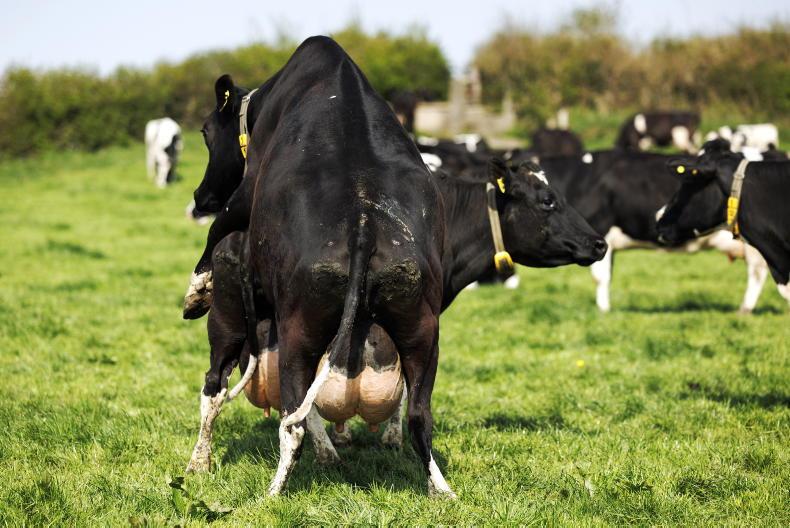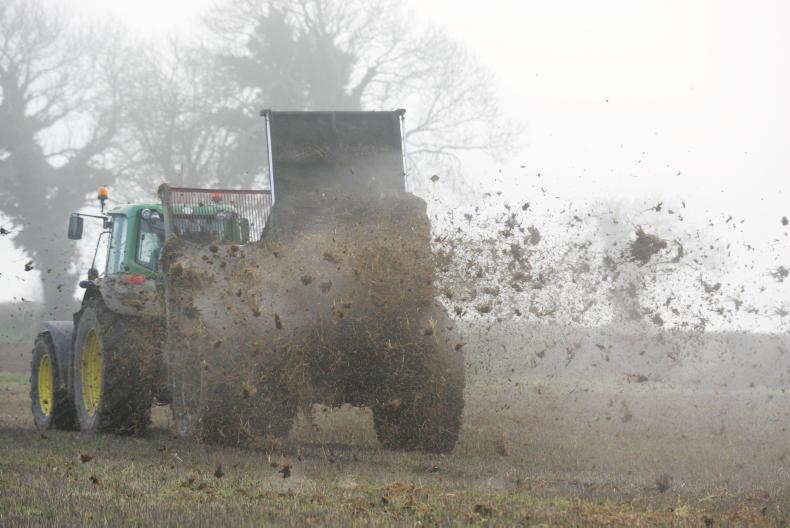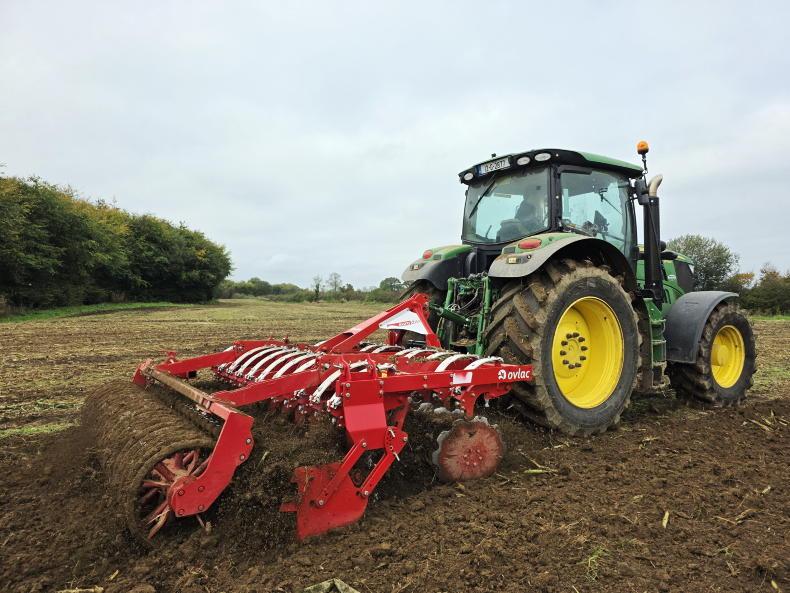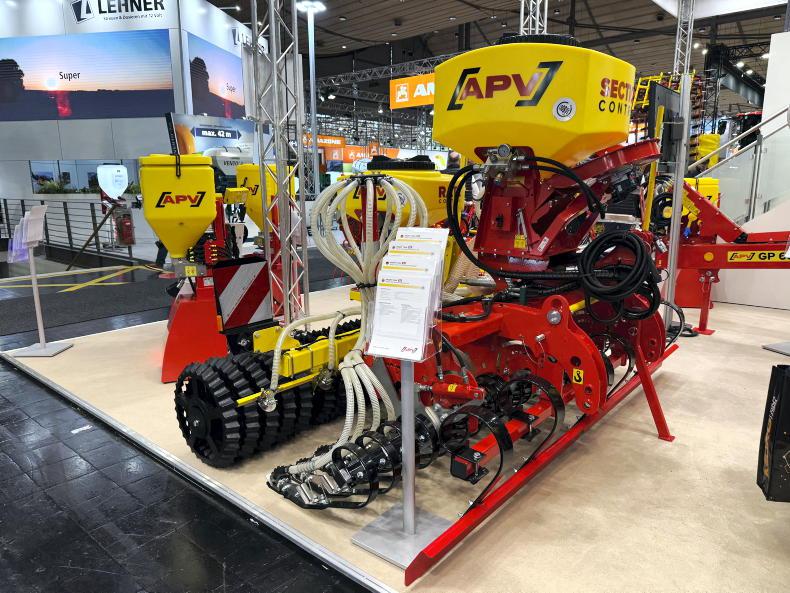At this stage, most farmers are either approaching or are gone past the three week stage for breeding.
The key thing now is to ensure that any cow not yet bred is done so as soon as possible. Those that haven’t been served must be checked out as to why.
For some they will not have been calved long enough, while others will be missed heats or just not cycling. Some of these non-cycling cows might just need more time, but getting them scanned and treated will speed up the process.
Doing nothing increases the likelihood of these cows falling outside of the system because they either won’t go in-calf at all or will calve very late.
Attention will soon turn towards stock bulls. Best policy is to have more than one bull, even in smaller herds to reduce the risks of infertility.
Where there is more than one bull they should be given time off, such as one day in the herd and one day off to relax and recuperate.
This improves bull performance and reduces the risk of bulls getting worn out too easily. As the season moves on heat detection gets harder because there is less activity.
People get tired also, so the use of a vasectomised bull will be a useful heat detection aid from now on.
I’ve seen a lot of reseeding completed over the last few weeks. Conditions are close to perfect in most cases, but the job still has to be done right. One of the big stumbling blocks in recent years seems to do with rolling after sowing. Grass and clover needs a fine and firm seedbed. The old rule of thumb was that you should be able to cycle a bicycle across the field when everything is finished.
Most farmers have a roller, but it’s usually only used once a year to roll reseeds.
To be effective, the roller needs water in it. I’d hazard a guess that most rollers don’t hold water, so they are about as effective as rolling with an empty tin can behind the tractor.
Heavy rolling will improve seed to soil contact, leading to faster germination and it’s also a control mechanism for leatherjackets, which are a big problem in the absence of chemical control. Slugs are another issue, particularly where slot seeders are used.
Summer is usually a time for projects on dairy farms. I sometimes come across roadways that are not angled away from drains – this could be a big problem in the event of a nitrates inspection.
All farmers need to comply with this, not just derogation farmers, but the penalties could be severe for derogation farmers. General resurfacing of roadways is something that needs to be done regularly.
Another project which doesn’t cost much but does take up a bit of time is around succession planning. It is never too early to start this process as it’s more than just deciding who takes over the farm.
A well thought out succession plan will be fair but not necessarily equal in how assets are dispersed and as importantly, will outline what roles each person will have.
It’s important to get professional advice and while reducing tax liabilities is important, it is more important that people are happy with the decisions made.
At this stage, most farmers are either approaching or are gone past the three week stage for breeding.
The key thing now is to ensure that any cow not yet bred is done so as soon as possible. Those that haven’t been served must be checked out as to why.
For some they will not have been calved long enough, while others will be missed heats or just not cycling. Some of these non-cycling cows might just need more time, but getting them scanned and treated will speed up the process.
Doing nothing increases the likelihood of these cows falling outside of the system because they either won’t go in-calf at all or will calve very late.
Attention will soon turn towards stock bulls. Best policy is to have more than one bull, even in smaller herds to reduce the risks of infertility.
Where there is more than one bull they should be given time off, such as one day in the herd and one day off to relax and recuperate.
This improves bull performance and reduces the risk of bulls getting worn out too easily. As the season moves on heat detection gets harder because there is less activity.
People get tired also, so the use of a vasectomised bull will be a useful heat detection aid from now on.
I’ve seen a lot of reseeding completed over the last few weeks. Conditions are close to perfect in most cases, but the job still has to be done right. One of the big stumbling blocks in recent years seems to do with rolling after sowing. Grass and clover needs a fine and firm seedbed. The old rule of thumb was that you should be able to cycle a bicycle across the field when everything is finished.
Most farmers have a roller, but it’s usually only used once a year to roll reseeds.
To be effective, the roller needs water in it. I’d hazard a guess that most rollers don’t hold water, so they are about as effective as rolling with an empty tin can behind the tractor.
Heavy rolling will improve seed to soil contact, leading to faster germination and it’s also a control mechanism for leatherjackets, which are a big problem in the absence of chemical control. Slugs are another issue, particularly where slot seeders are used.
Summer is usually a time for projects on dairy farms. I sometimes come across roadways that are not angled away from drains – this could be a big problem in the event of a nitrates inspection.
All farmers need to comply with this, not just derogation farmers, but the penalties could be severe for derogation farmers. General resurfacing of roadways is something that needs to be done regularly.
Another project which doesn’t cost much but does take up a bit of time is around succession planning. It is never too early to start this process as it’s more than just deciding who takes over the farm.
A well thought out succession plan will be fair but not necessarily equal in how assets are dispersed and as importantly, will outline what roles each person will have.
It’s important to get professional advice and while reducing tax liabilities is important, it is more important that people are happy with the decisions made.










SHARING OPTIONS